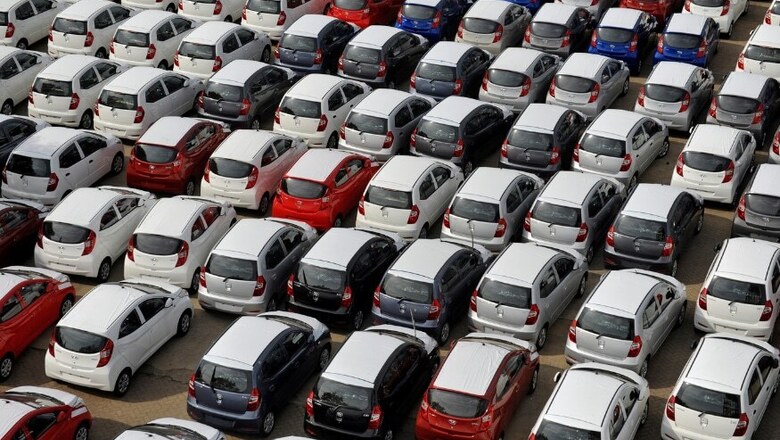
views
The massive reduction in corporate tax rates will have a minimal impact on reviving the steeply falling auto demand as the 10-12 percentage points reduction in the levy on companies can at best lead to a 1-2 per cent discount only, says a report. As against this, had the government offered a GST reduction, demand could have been propped up well, helping automakers offer a 7-8 per cent discounts, the report adds. The auto industry, which is facing its worst crisis in two decades, had been pleading for a GST cut to 18 per cent from the current 28 per cent to boost sagging sales.
However, the GST Council refused to pay heed as the Central government chose to open the wallet for the entire India Inc by way of a corporate tax cut, the first time in last 45 years following the deepening slowdown, which was reflected in the first quarter GDP slipping to a six-year low of 5 per cent. According to reports, almost 55 per cent of the Rs 1.45 lakh crore tax giveaways will be borne by the states, putting their finances into a deep-freeze. Ahead of the GST Council meeting, finance minister Nirmala Sitharaman had announced the tax cuts in Goa on September 20.
"Original equipment makers (OEMs) could choose to pass corporate tax cut benefits to customers, but this would imply only a 1-2 per cent additional discount as against 7-8 per cent if they were offered a 10 per cent GST cut (which did not happen)," foreign brokerage Jefferies said in a report. Noting that a 10 percentage point reduction in GST would have brought down on-road prices by as much as 7-8 per cent, the report said, "as a result, the issue of inventory pile-up ahead of the BS-VI transition in April persists, particularly for two-wheelers and medium and heavy vehicles."
Barring a sharp surge in demand during the forthcoming festive season, our channel checks suggest relatively weak demand in the first phase of the festive season in Maharashtra
and Kerala, among others. As a result OEMs will have to discount aggressively to bring inventory under control, with implications for the second-half earnings, the report notes. Already auto companies are offering heavy discounts to tide over the crisis. If fact M&M's Pawan Goenka was on record admitting that he was already offering 20 per cent discounts to boost sales, which had plunged close to 32 per cent for the industry in Q1, the worst in two decades.
Nevertheless, acceding to the report, bringing down the marginal tax rate cut from 34.9 per cent to 25.2 per cent should mean a 5-13 per cent boost in earnings per share for the OEMs. In other words, OEMs may see a 5-13 per cent boost in the bottom line from the tax cut. This benefit should start showing from Q2, with possibly even the write-back on higher taxes provided in Q1 and deferred tax liability reflected in Q2 numbers, it added. "We do not expect a significant turnaround in demand immediately and BS-IV inventory correction remains a headwind for 2HFY20. However, the measures have improved the prospects for a quicker and stronger recovery next fiscal," the report concludes.




















Comments
0 comment